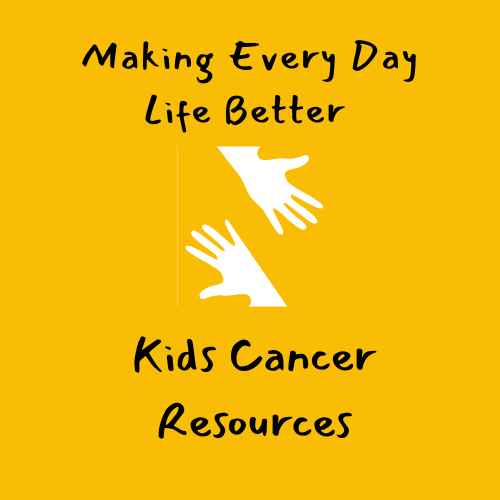Best Ways Parents Help Childhood Cancer
Article by: Katie Sutton M.D. - Pediatric Oncologist One of my favorite parts of being a pediatrician, and a pediatric oncologist specifically, is the
opportunity to care for my patients AND their entire families. While all families support their child in
their own ways, there are certainly common threads among families who do this incredibly well. After
more than 10 years practicing pediatric oncology (and with some sage input from my solid tumor
colleagues – Drs. Stokes and Wasilewski and Melissa Martin, NP), here are some things we have found
to be incredibly helpful in this unbelievably challenging time.
Best Ways Parents Can Help in Childhood Cancer
1. “Put on your own oxygen mask before helping others.” It can be tempting for families to pour their hearts and souls into caring for their ill child and neglect their personal care. Maintaining your own physical and mental health is essential to be able to provide the best care for your child.
2.“Humor is the best medicine.” Although cliché, this is incredibly true. Of course, there is nothing funny about a diagnosis of childhood cancer, but if you’re willing to watch for it, there is often humor in so many situations. Maintaining perspective, giving yourself grace, and being able to see the lighter side of things will not only help you stay sane, but also bring a sense of joy and brightness to your interactions with your child. Children are incredibly perceptive and feed off the stress of their parents, seeing the humor where there is some can lighten their load.
3. Children continue to go through stages of development despite a cancer diagnosis. They will continue to naturally mature and test boundaries, especially if they are toddlers or teens. Although it often seems natural to give in to all their requests when they are ill, maintaining some semblance of discipline is actually incredibly important for their long-term development and behavior. Of course, we want to do things to make them more comfortable, but children benefit from routine and reasonable rules. This is how they learn how to self-regulate and be successful in the present and as adults.

Talk with your child
Keep their age in mind while sharing information. Try to keep life as normal as possible.
4. Engage your child in age-appropriate conversations about their diagnosis and treatment.
Children are incredibly smart and can pick up on what is going on. If they perceive the adults
around them are not being forthright, they often assume what’s happening is EVEN WORSE than
it actually is. Utilize your oncologist and child life team to keep them informed. Additionally,
children are often very insightful and can, from a fairly early age, contribute to decisions about
their health in ways that can be wonderful and surprising.
5. Don’t threaten your child with medical interventions – don’t say things like “If you don’t behave,
you’ll get an extra shot/poke/medicine, etc.” There are medically necessary things that we have
to do to your child. Turning the unpleasant parts of treatment into a punishment makes them
both physically and emotionally painful and decreases your child’s trust in their medical team.
6. Try to make life in the hospital as normal as possible – lights on during the day with the blinds
up, continue with schoolwork or other routines, normal bedtime. This improves mood and
sleep and decreases delirium. Establish a routine for procedures, pokes, scans. Bring the same toy or blanket, watch the same shows/listen to the same music, get milkshakes after every scan – whatever feels right. It helps children to have a routine and be able to know what to expect.
7. Engage with the school liaison at the hospital and your child’s school to continue their
education. Keeping up with their peers as they are able is not only important academically but
psychologically as well. It helps maintain normalcy and a sense of progress in something other
than cancer treatment.
8. Allow your child to continue to engage with their friends. As long as their friends aren’t sick,
they can visit and play with your child. This too is important to maintain normalcy and
happiness. Additionally, it can also be traumatic to finish cancer treatment and realize all your
friends have moved on and made new relationships – some of this is inevitable but allowing
them to continue to socialize can help.

Family Is Important
9. Name a family member or friend to help coordinate the multitude of community members who
will want to help you – folks will want to bring meals, gifts, etc. and while well-meaning, it can
easily become overwhelming. Similarly, it’s OK to set boundaries and let folks know when you
need some space.
10. Work hard to maintain the other relationships within the family. Your relationship with your
spouse and especially your relationships with your other children remain just as important, if
not even more important, than before your child’s diagnosis. Save time and space for them too.
Most importantly, know that you ARE ENOUGH. Be with your child, love on them, engage with
them. At the end of the day, you are exactly what they need.


